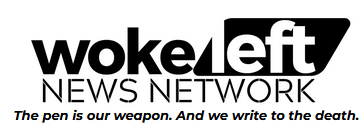We live in a complex global landscape where few organizations inspire as much curiosity and controversy as the World Economic Forum (WEF). You’re seen the headlines. From “elite gatherings” to “secret world government,” the WEF has found itself constantly at the center of heated debates about democracy, capitalism, and the future of humanity. But what exactly IS the WEF, and is it truly something the average citizen should be concerned about?
I’m going to try and break it down for you, objectively. In this piece, I’ll explore what the WEF is, its mission, the reasons it has drawn both admiration and suspicion, and whether the anxiety surrounding it is justified.
Understanding the World Economic Forum
Founded in 1971 by none other than economist Klaus Schwab (no relation to Charles), the World Economic Forum began as a small, European-focused gathering of business leaders. Today, it has transformed into a powerhouse platform that hosts global discussions involving heads of state, CEOs, academics, non-governmental organizations, and influencers from across every sector.
The WEF’s mission, according to its official website, is “committed to improving the state of the world through public-private cooperation.” What does that mean? Well, it promotes dialogue and collaboration on major global issues such as climate change, technology, healthcare, and economic inequality. It shapes global agendas, creates and advances initiatives such as the Global Plastic Action Partnership and the EDISON Alliance. It promotes research and knowledge sharing, oftentimes doing their own research, reporting and recommendations, such as with the Global Risk Report. It also actively advocates for a more sustainable and equitable world.
All these initiatives are important and needed, stemming from a place of betterment, in principle, anyway.
Every January, thousands of the world’s most influential people meet in Davos, Switzerland, to discuss these challenges during the WEF’s Annual Meeting. Topics range from sustainable development and AI ethics to global financial stability and pandemic preparedness.
What Makes the WEF Controversial?
Despite its seemingly noble goals, the World Economic Forum faces heavy criticism. Here’s why it has stirred skepticism across the political spectrum:
1. Elitism and Exclusivity
The WEF is often seen as a gathering of the global elite — billionaires, political leaders, royalty, and celebrities. Invitations to Davos are highly selective and expensive. For many, this exclusivity sends a clear message: decisions affecting billions are being discussed by an out-of-touch privileged few, behind closed doors. It’s a valid critique.
2. Influence Without Accountability
While the WEF itself does not create laws or policies, it fosters relationships and networks that undoubtedly shape governmental and corporate decisions. Critics argue that this influence lacks transparency and democratic legitimacy, raising concerns about who truly holds power in shaping global priorities.
3. The “Great Reset”
In 2020, the WEF introduced “The Great Reset,” a campaign aimed at rebuilding the economy sustainably following the COVID-19 pandemic. While it emphasized green energy, equitable economic systems, and digital innovation, many saw it as a threat to free markets and personal freedoms. Phrases like “You’ll own nothing, and you’ll be happy”, which were used in some of the WEF promotions, circulated widely and fueled conspiracy theories about mass control.
4. Corporate Greenwashing
Many multinational corporations partner with the WEF and participate in its discussions on sustainability and ethics. However, some of these same companies have been implicated in environmental degradation, labour violations, and monopolistic practices, raising serious questions about the sincerity of their commitments.
At the same time, attendees who arrive in private jets while lecturing the world about the need for plant-based diets to reduce carbon emissions project a disturbing contradiction. This perceived hypocrisy erodes public trust and fuels the criticism that the WEF is a vehicle for image laundering rather than for real change.
What Does the WEF Actually Do?
To fairly assess whether we should be worried, it is essential to understand the WEF’s concrete actions.
The WEF operates primarily as a convener and idea incubator. It produces research, white papers, and recommendations on global issues. Some of its initiatives include:
- The Global Risks Report: Annual analysis of top worldwide risks, from cybersecurity threats to climate instability.
- The Fourth Industrial Revolution Center: Studies the intersection of technology and society, aiming to guide ethical innovation.
- Public-Private Partnerships: Drives collaborative projects such as improving vaccine distribution, building sustainable cities, and promoting gender equality in leadership.
The WEF also supports regional and industry-specific platforms, encouraging stakeholders to collaborate on specific goals like clean energy or digital access.
Should We Really Worry About the WEF?
The answer to that lies in a gray area.
On one hand, the WEF does not wield direct legislative or executive power. It cannot force governments or corporations to act in specific ways. Its role is more that of an influencer, providing a platform for discussions that often reflect prevailing global trends rather than creating them outright.
On the other hand, influence matters. When the most powerful players in finance, technology, politics, and media gather under one roof to set narratives, they can shape public policies and market behaviors, often without input from the broader public.
Key reasons to remain critical and vigilant:
- Transparency: The lack of open dialogue about private meetings fosters distrust.
- Representation: Many voices, especially from the Global South, grassroots movements, and working-class communities, are underrepresented.
- Accountability: Initiatives that sound good on paper often lack measurable follow-through or enforceable commitments.
Thus, while it would be an exaggeration to paint the WEF as an all-powerful “secret government,” it is entirely reasonable to question the outsized influence it holds and to demand more transparency and inclusivity.
At the same time, it’s worth asking an uncomfortable but necessary question: in all seriousness, who actually has the means to fix the world’s biggest problems if not those with immense resources? Solving global issues often demands not just good intentions, but extraordinary financial, logistical, and organizational power. Like it or not, the people with money are in a position to act — and they must be held to higher standards rather than simply dismissed. But by whom?
Conclusion
The World Economic Forum represents both an opportunity and a challenge. It offers a platform for global collaboration on pressing issues, which is much needed, but leaving 99% of us out of the decision-making process on things that will greatly affect us is, to put it lightly, problematic. The risks associated with concentrating influence among a select few outweighs the benefits at this point, in my opinion. The WEF not being accountable to anyone is inherently dangerous.
Researching the topic has raised more questions than given answers. Establishing citizen-led review boards to oversee WEF influence on national and international policy is necessary, but how can this be accomplished? A starting point could be advocating for legislation that requires public officials attending WEF events to fully disclose all meetings and agreements.
Global challenges require collective solutions, not exclusive conversations. The future must be built by everyone — not just those who can afford the price of admission to Davos.



